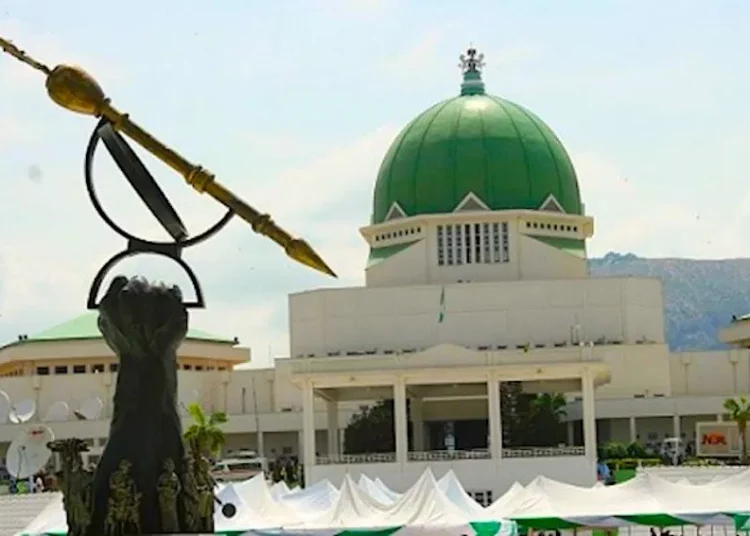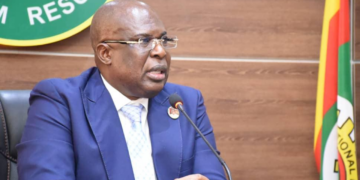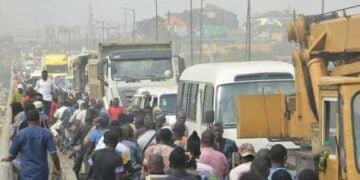Nigerians from various spheres and other stakeholders agitating for the creation of 31 additional states in the country have hinged their actions on the need to spread development and freedom from their age-long marginalisation by the majority ethnic groups in their states.
They allayed the fears that the proposed states, like the existing ones, would not be viable, arguing that the recommended states have enough resources to thrive.
In Lagos State, the executive director of the Centre for Anti-Corruption and Open Leadership (CACOL), Mr Debo Adeniran, said the state is stupendously rich to take care of itself with or without federal allocation.
“So, they can create a Lagoon State for more rapid development. However, I fear that we don’t need too many political divisions and sub-nationals.
“We should just have federal and local governments and the 774 local governments in Nigeria should be converted to states, and abolish the current state structure, so that the administration of the people’s lives will be easier, and people will be brought closer to government, even at the centre.
“And that the centre doesn’t have many roles to play other than to coordinate the activities of such states. The state governments just create problems between the federal government and the people and they create confusion during elections.
“They do too little for the benefit of the people, mostly for the benefit of themselves. That is because the local government becomes a kind of shield between the people and the state government. These new states will take over the functioning of local governments because they want to make them promising, to make them popular,” he said.
The member representing Warri Federal Constituency in the House of Representatives, Hon Thomas Ereyitomi, while presenting the proposed Warri State creation memoranda drafted by the Itsekiri Leaders of Thought (lLOT), explained the economic viability of the proposed Warri State in the following areas: Oil and gas, the three Warri LGAs are the source of about 33 percent of Nigeria’s total oil production and over 78 percent of Delta State quantum.
“With Warri being the proposed headquarters of the state, it is the mega-metropolis of the present Delta State and contributes about 70 percent of its internally-generated revenue. Other assets: Chevron Tank Farm at Escravos. The EGTL Projects in Escravos (all in Warri South West LGA), the Bonga, Okan, and over 20 other oil fields, the Warri Refinery in Warri South LGA, Chevron & Shell Field Offices in Warri and Escravos, Ogidigben proposed Export Processing Gas Zone.”
He added the three major sea ports in Warri, Koko and Escravos, and the last-named loads of ocean-liners from its tank farm, agriculture including fishing trawlers based within the proposed state for fishing, shrimping and cray fishing hold great promises for the proposed state.
Other economic potential of the “Warri State” is tourism: the Nanna Living History Museum in Koko – the first of its kind in this part of Africa – and the Royal Cemetery, Ijala in Warri – a potential World Heritage Site.
Similarly, the convener of Old Ogoja Province Initiative (the umbrella group for agitation of Ogoja State), Papa Don Enamhe, said Nigerians were beginning to get it right at the moment by heeding to the yearnings of the people by conceiving the idea to allow the creation of Ogoja State.
Enamhe said the planned state would attract development to Cross River Central and North, stressing that the creation of the new state would end the fear that the North and Central Cross River had been geographically marginalised.
He stressed that the region has the resources to cater for its development as a state.
Enamhe said, “First, we have peace, we have the desire, the manpower, beyond the other gifts that have come to us. Grant us first Ogoja State and see if we won’t manage it well, we will manage it.”
Mr Alozie Azumara, an agitator for the creation of Aba State since the Second Republic said the struggle would end with the achievement of the objective.
“The creation of Aba State from the present Abia State is long overdue and I appeal to all who will make it happen to make it a reality this time around,” the senior citizen said.
He argued that the proposed state has the population, human and material resources required for development.
He said, “On viability, the state will be in the top echelon. Agriculture, oil and gas and of course, Aba, the commercial hub of the East and beyond can sustain it.”
Member representing Maiha, Mubi-North and Mubi-South and the chief agitator for Amana State from the present Adamawa State, Hon Ja’afar Magaji, said the proposed Amana State could stand on its own as a state due to revenue being generated from the international cattle market in Mubi town
Magaji said Mubi, the second largest commercial hub to Yola, the state capital, is booming in cattle business from Cameroon and Central Africa and other Francophone nations.
He said most of the cattle being slaughtered in Lagos and other parts of the country are from Mubi, so also its value chain has proven employment opportunities for people of the area.
In Benue State, mixed reactions have trailed the recent pronouncement by the National Assembly to create additional states. While some prominent leaders welcomed it, others opposed the move.
A political analyst who is one among the promoters of state creation John Shiaondo, said he was hundred percent in support of new states.
“We need additional states. Apart from Apa and Benue Ala states, the creation of Kwande State alongside the above two states would bring development to the Benue Valley.
“Kwande alone can boast of several mineral resources that can finance the state. Generally, the creation of new states will assist in solving some of the boundary disputes being experienced in the country,” he said.
But a criminologist and lecturer in the Department of Sociology, Benue State University, Makurdi, Dr Tersoo Shaminja, faulted the National Assembly’s proposal for the creation of more states stressing that, instead of more states, the old ones should be encouraged to be viable and self-sufficient to meet their obligations to the people.
Shaminja charged the National Assembly to use their oversight functions to ensure the full implementation of local government autonomy – financial and administrative – for the grassroots system to pave the way for more democracy dividends at the third tier.
In Enugu State, a key promoter of Adada State and retired professor at the University of Nigeria, Nsukka (UNN), Professor Damian Opata, said the proposed state has a long history.
He said when the stakeholders voted for a new state in the Southeast, Adada State came first.
On why many states are not viable, he attributed it to bad leadership, insisting that many states in Nigeria can survive without federal allocation.
He identified Enugu State under the present governor, Peter Mbah, as one of the states that can survive without federal allocation, stating that the governor had been generating revenue and using the fund to execute major projects.





